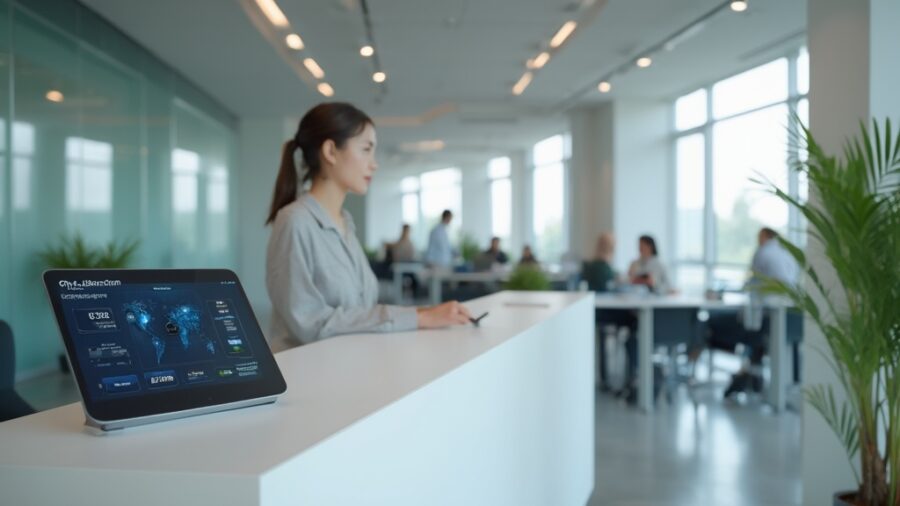New York is home to corporate offices, startups, and creative agencies thrive. The first point of contact with these businesses usually happens at the reception desk. Today, AI receptionists offer fast and professional interactions for guests. But how secure is the data these systems handle?
Visitors who check in will have to share information like names, phone numbers, IDs, or company details. So, NYC businesses must safeguard this data. AI receptionists streamline processes and open doors to potential security risks if not managed properly. View this page to know how dependable and secure AI receptionists are.
The Type of Data AI Receptionists Collect
Many systems request contact details, scan IDs, capture photos, or record visitor logs. Some integrate with building access systems. Thus, they handle sensitive data tied to entry permissions. This makes them valuable for efficiency and a target for cybercriminals. A stolen visitor log could reveal client meetings, business partners, or schedules. Competitors or malicious individuals may exploit this information. Thus, businesses in New York must take this risk seriously.
Regulatory Compliance in New York
New York has strict data protection standards. The SHIELD Act requires businesses to implement safeguards to protect personal data from unauthorized access. Companies using AI receptionists should ensure visitor information is stored, processed, and transmitted securely. Failing to meet these requirements can result in financial penalties and reputational harm. The stakes are higher in finance, law, or healthcare as breaches can trigger additional federal compliance issues. A seamless front desk experience should never come at the cost of noncompliance.
Encryption as the First Line of Defense
Strong encryption is essential when AI systems store or transmit visitor data. Encryption ensures that anyone who intercepts information cannot make sense of it without the proper key. This applies to digital visitor logs and real-time notifications sent to staff. Without encryption, sensitive data could travel across networks in plain text, leaving it vulnerable to interception. New York businesses should verify that their AI reception platforms use modern encryption protocols to protect guests and maintain trust.
Secure Cloud Storage and Local Backups
Many AI receptionist systems rely on cloud storage to manage visitor records and system data. Cloud services provide scalability and convenience, but they also present risks if not properly secured. Businesses must confirm that providers follow industry best practices, including multi-factor authentication, access controls, and regular security audits.
Local backups are also important. it is important to have a secure local copy of critical data in the event of an outage or breach to ensure business continuity.
Role-Based Access for Employees
Not every employee needs the same level of access to visitor information. Role-based access ensures that staff only see the data necessary for their responsibilities. Without these controls, sensitive data risks exposure to employees who do not need it. New York businesses with large teams or multiple departments should define roles and access rights to strengthen security.
Biometric Data and Added Sensitivity
Some AI receptionist systems go a step further by collecting biometric data, such as fingerprints or facial scans. These features improve security and convenience, but also introduce heightened risks. Unlike passwords, biometric data cannot be reset once compromised.
Businesses must treat biometric data with extreme care. They should have in place clear, consent, and strong storage protections. Also, strict compliance with privacy laws is non-negotiable. Mishandling biometric information could result in both legal consequences and public backlash.
Integration with Building Systems
AI receptionists often connect with broader building systems, such as elevator access, security cameras, or digital key cards. This integration enhances efficiency and creates more points of vulnerability. A weak link in one system can open doors for unauthorized access across the entire building network.
This concern is amplified for NYC businesses in shared office towers. Collaboration with property managers and IT teams is crucial to ensure that all connected systems meet the same security standards.




